Whistleblower claims Milwaukee doctor performed unneeded surgeries
A complaint says Aurora St. Luke's physician Dr. Scott Kamelle endangered patients at the hospital — and drove up costs — with extra surgeries and a product not approved for internal use.
Wisconsin Watch
May 3, 2023 • Southeast Region
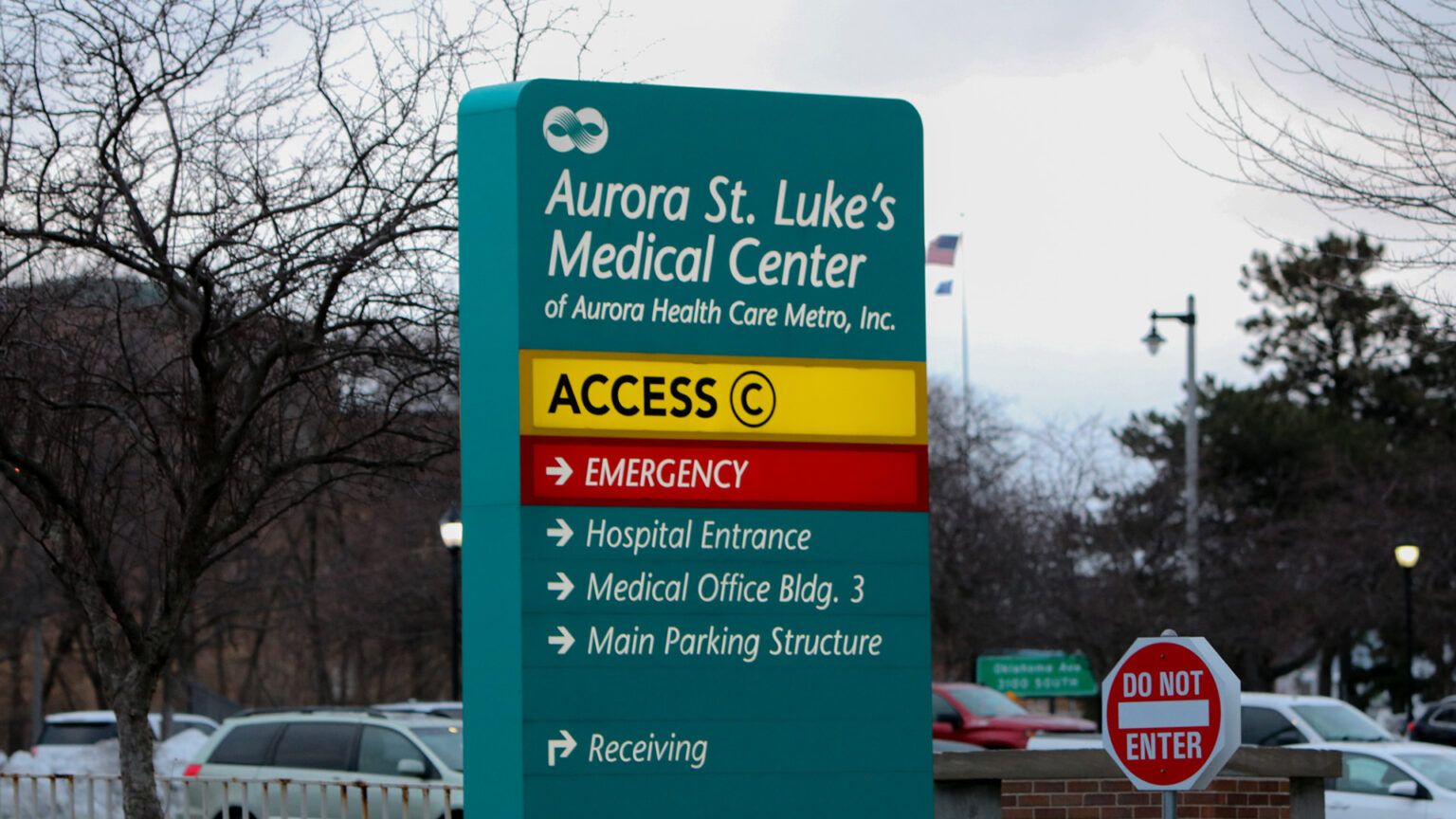
A whistleblower has alleged that a gynecologic oncologist at Aurora St. Luke's Medical Center in Milwaukee endangered patients and drove up costs. Aurora St. Luke’s Medical Center is seen in Milwaukee on March 16, 2023. (Credit: Jonmaesha Beltran / Wisconsin Watch)

This article was first published by Wisconsin Watch.
Rita Adamson died under the care of a physician she didn’t want to see.
Rita, 62, lived with cervical cancer for six years. “Until the last day of her life,” her husband Bill wrote, “Rita was active, walked with a cane, prepared food and did shopping.”
Many doctors treated her illness over the years, but one, Adamson said, stood out for his unprofessional behavior: Dr. Scott Kamelle, a gynecologic oncologist from Milwaukee-based Aurora St. Luke’s Medical Center, Wisconsin’s largest hospital.
The first time Kamelle interacted with the couple, Rita had been admitted to the hospital. Kamelle was covering for her regular doctor. Kamelle, Adamson said, never showed.
Instead, Adamson alleged in a letter to Aurora’s chief medical officer, Kamelle took three hours to respond to a phone call and lied in hospital records that he had seen and examined Rita when he had not. Kamelle told the couple that she had just a few months to live, he couldn’t do anything to help her, and Rita went home “without adequate pain control,” Adamson wrote.
After that, Rita refused to become Kamelle’s full-time patient. But she had no choice whenever she had an emergency and he was on call. That is what happened the weekend she died.
On the last full day of Rita’s life, July 16, 2016, Adamson surprised her with an anniversary party. But at some point that day, Adamson wrote in the letter, they discovered blood clots filling the drainage bulb that remained after a surgery. They followed prior instructions and called her doctor’s office. The staffer who answered told them Kamelle was on call and that he’d call back soon. He never did.
The next morning, Rita was too tired to go to church. Adamson wanted to stay home with her, but said she insisted he attend. He returned to find her lying in the hallway.
Rita had bled to death.
Adamson did not know why Kamelle did not respond that weekend. “I’m a layman,” he recalled. “What do I know?” But Kamelle would later claim he had not received the page at all because he was in a “dead zone.”
“Do I blame him for her death?” Adamson asked. “No, not really. But he should have called me back that day.”
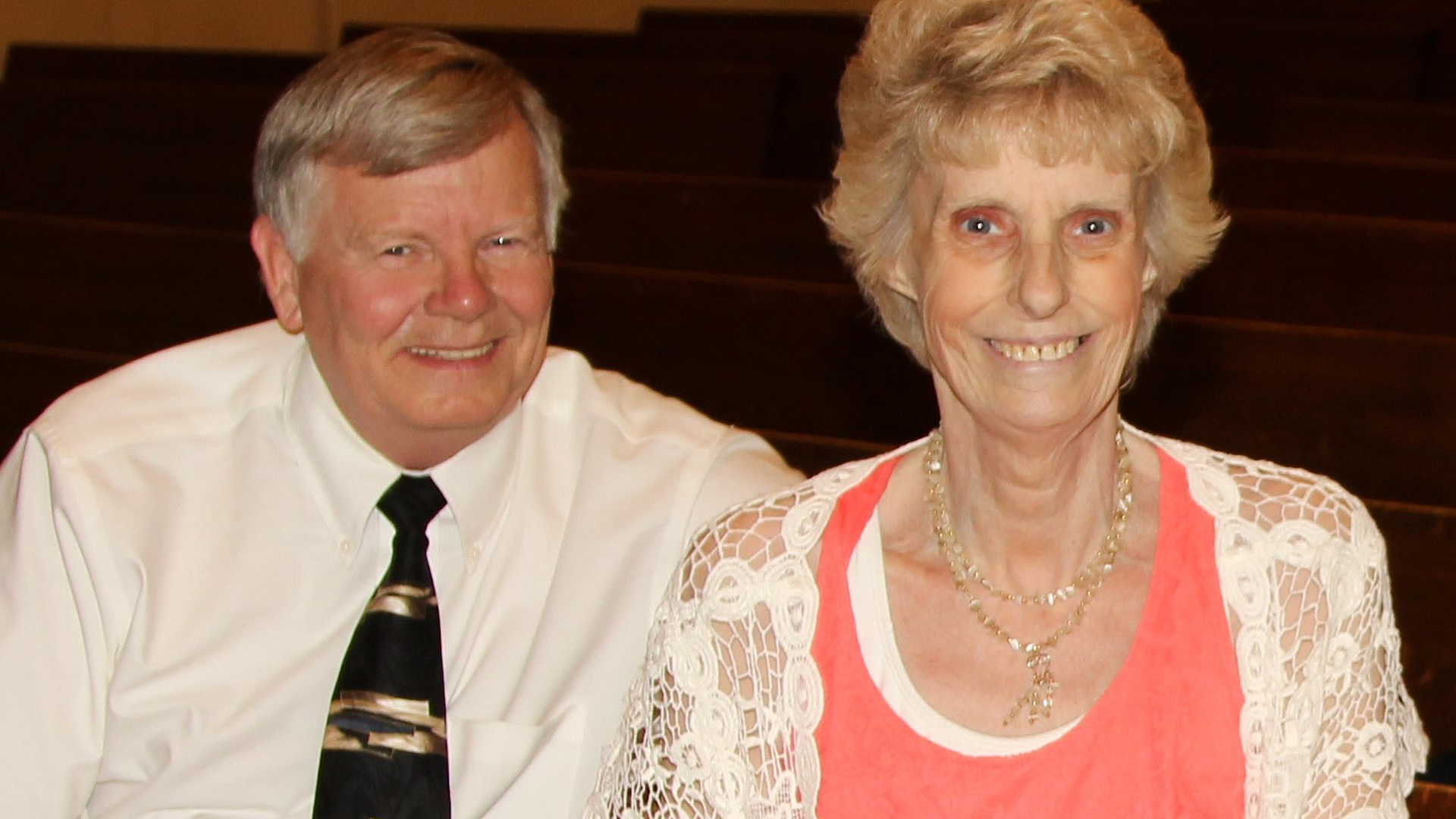
Bill and Rita Adamson are pictured at a wedding, two weeks before Rita’s passing in 2016. Rita survived cervical cancer for six years and bled to death at home after the doctor on call, Dr. Scott Kamelle, failed to return her and her husband’s concerned calls. (Credit: Courtesy of Bill Adamson)
Adamson sought accountability from Aurora and the Wisconsin Department of Safety and Professional Services, which licenses physicians. Wisconsin Watch sought an interview with both Kamelle and Advocate Aurora Health leadership, but a spokeswoman did not make them available.
Rita “could have lived longer if Dr. Kamelle had responded to his page,” Adamson wrote in a letter to the DSPS. “My goal is to make sure what happened to my wife will not happen to anybody in the future.”
DSPS found no violations of law or rules in Adamson’s complaint. Aurora also did not find Kamelle at fault, although a spokeswoman acknowledged in a statement that the hospital’s “on-call process that day did not work as intended and has been addressed.”
DSPS also did not issue any discipline in another complaint against Kamelle forwarded by federal authorities from a federal lawsuit. And a review of Kamelle’s practice by Aurora St. Luke’s similarly identified no wrongdoing, the hospital said.
Other complaints emerge
Concerns over Kamelle’s practice have resurfaced in a DSPS complaint filed by the same whistleblowing physician who filed the federal lawsuit. Wisconsin Watch obtained the DSPS complaint through an open records request and convinced a magistrate judge to unseal the lawsuit filed in the U.S. District Court for the Eastern District of Wisconsin.
The whistleblower withdrew the lawsuit in 2020 after the government declined to join as a plaintiff in the case. While the court unsealed the complaint, it declined to provide records containing “confidential information about the status of the governments” investigation at that time and the investigatory techniques used by the governments.”
The physician, along with seven other doctors interviewed by Wisconsin Watch, requested anonymity fearing professional retribution for speaking out. Together, the seven physicians recounted personal observations of Kamelle’s alleged practices, corroborating key aspects of the whistleblower’s allegations.
In addition, one of Kamelle’s practices — routine placement of ureteral stents — is rarely indicated, occurring in less than 3% of major inpatient gynecological surgeries, studies show.
Emails show the whistleblowing physician also alerted hospital officials to his concerns. Two other physicians told Wisconsin Watch that they, too, sought intervention from hospital leaders.
“The perception at Aurora is Dr. Kamelle is untouchable,” a DSPS investigator wrote in a memo summarizing a statement from one of the physicians who was interviewed in the case. “Management will not address issues that have been brought to their attention involving Dr. Kamelle,” the physician claimed.

Aurora St. Luke’s Dr. Scott Kamelle’s profile page is seen on the Aurora Health Care website. A whistleblower complaint claims Kamelle endangered patients, and drove up costs, with extra surgeries and a product not approved for internal use. When asked for comment, Aurora dismissed the allegations. (Credit: Screenshot of aurorahealthcare.org)
Chief among the whistleblowers’ allegations: that Kamelle routinely implanted powder and mesh devices, placed ureteral stents and involved additional surgeons in all except minor outpatient surgeries without medical necessity, leading to increased charges and potential complications. (Advocate Aurora is currently facing a class action lawsuit related to its high prices.)
The DSPS complaint cites multiple internal reviews conducted by Aurora which allegedly found Kamelle’s robotic surgeries cost twice as much, as well as “significantly higher rates of pelvic infections,” longer hospital stays and higher rates of open surgery compared to two of his peers. Aurora declined to provide those internal reviews to Wisconsin Watch.
When asked for comment, Aurora dismissed the allegations.
“The claims have been thoroughly investigated through a robust process that included an independent physician analysis,” Dr. Frank LaVora, chief medical officer for Aurora’s Greater Milwaukee patient service area, said in a statement.
LaVora said the analysis showed Kamelle “consistently met all standards of care and no opportunities for clinical improvement were identified,” but a spokeswoman declined to provide the analysis.
False claims lawsuits filed
The former Aurora physician filed a federal false claims lawsuit regarding Kamelle’s “unjustified and routine” use of products at Aurora produced by the medical device manufacturer ACell.
Such legal actions, also known as qui tam lawsuits, enable individual whistleblowers, called “relators,” to bring civil or criminal charges against those who have defrauded the federal government. It is often used to detect and prosecute Medicare and Medicaid fraud cases.
Three years earlier, a former ACell employee filed his own qui tam action in Maryland against the company, in part alleging it had fraudulently marketed one of its products — a “powder wound-dressing” called MicroMatrix — for internal use, when the Food and Drug Administration had only approved it for use externally.

MicroMatrix is advertised on the ACell website as a wound management product appropriate for “acute wounds and chronic wounds.” In the 2010s, ACell management directed staff to sell MicroMatrix for internal use, despite not having FDA approval, according to a federal guilty plea and settlement agreement. In 2011, ACell discovered MicroMatrix had dangerously high levels of toxins called endotoxins and engaged in an illegal silent recall. (Credit: Screenshot of acell.com)
In 2019, the Maryland lawsuit resulted in a civil settlement from ACell. The company agreed to pay $15 million to settle criminal and civil liability arising from allegations that, in part, ACell “caused false claims to be submitted to federal health care programs” for MicroMatrix, according to a press release from the U.S. Department of Justice. ACell also pleaded guilty to one misdemeanor for failing and refusing to report a recall of its product to the FDA.
The False Claims Act allows the whistleblowing relators to recover a portion of any fraudulently billed amount. The former ACell employee received nearly $2.4 million.
False claims lawsuit leads to DSPS referral
The U.S. Department of Health and Human Services Office of Inspector General referred the surgeon’s false claims allegations about Kamelle to the state DSPS for investigation, an agency spokesperson confirmed.
DSPS closed the case, saying the “allegations could not be substantiated.”
Neither DSPS nor the inspector general’s office would provide Wisconsin Watch with the referred complaint. But emails obtained by Wisconsin Watch provide a glimpse into what DSPS investigated.
The agency audited eight procedures Kamelle handled in 2019 and 2020 — years after the 2010-16 period about which the whistleblower raised concerns. All procedures were “radical dissection for tumor debulking, billed as a primary surgery, with corresponding bowel obstruction,” with the same billing code.
The emails did not mention ACell. But each case substantiated the whistleblower’s key allegations about ureteral stents and additional surgeons.
A urologist was involved in all eight cases, placing a ureteral stent in seven or eight cases — the documents disagree. In addition, in all eight cases, one or two additional colorectal or general surgeons provided a “surgical assist.”
In response to DSPS closing the case, the whistleblower reiterated his allegations in a separate complaint, which is still pending. Kamelle also filed a complaint against the whistleblower, which the agency dismissed.
Contaminated product used
The federal guilty plea and settlement agreement indicate that ACell’s “senior management directed its sales force to sell MicroMatrix for internal uses” despite not having FDA approval.
And some of the product that ACell inappropriately encouraged physicians to use internally happened to be contaminated. In 2011, the company discovered MicroMatrix had dangerously high levels of toxins called endotoxins.
Endotoxin exposure can cause fever, infection, septic shock and death. The FDA sets a limit for the acceptable amount of endotoxins — 20 units — in a medical device intended for internal implantation. ACell discovered some contained as many as 272 units.
It found dangerously high contamination in a separate product — PSMX Sheets, which were approved for internal use — as well. ACell notified the FDA and the public that it was issuing a recall.
But according to the plea agreement, ACell “took no action to recall or remove” the contaminated MicroMatrix.
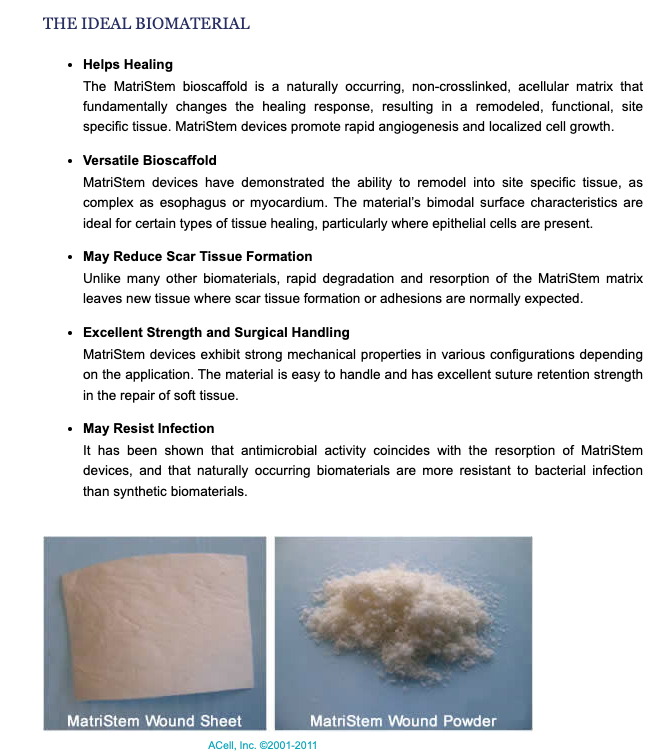
MatriStem Wound Sheets and MatriStem Wound Powder are described on the 2011 version of the ACell website. In 2011, ACell found dangerously high contamination of endotoxins in PSMX Sheets, which were approved for internal use, and recalled them. (Credit: Screenshot of acell.com)
The company began a silent, selective recall after another round of testing in January 2012 again found dangerously high levels of endotoxins in MicroMatrix. The company’s senior management quietly removed the larger packages of contaminated MicroMatrix because they knew those “were used internally” — again, contrary to FDA guidelines — but it did not notify the FDA, in violation of the law, according to the plea agreement.
Nor did ACell disclose the contamination to doctors, hospitals or their own sales force. Some representatives continued to unwittingly sell the contaminated, larger packages after being instructed to return them to headquarters.
As for the smaller volumes of MicroMatrix, which had contamination carrying the same level of risk, ACell did nothing. It did not remove the smaller packages, nor did it inform doctors or hospitals about the contamination, because, according to the company’s CEO, it had “too much street value.”
When several medical professionals told ACell their patients had suffered complications, the company again did not disclose the contamination.
Kamelle ‘routinely’ used ACell
The whistleblowing physician alleges in his ongoing DSPS complaint that Kamelle engaged in “routine implanting of unnecessary meshes and biologic powder” which stemmed from an allegedly close relationship with the ACell sales representative.
A second physician, who asked Wisconsin Watch not to be named, told DSPS that he spoke under oath to the U.S. Attorney’s Office about Kamelle’s use of ACell mesh.
According to a summary of that DSPS interview in January 2022, conducted as part of Kamelle’s unsuccessful complaint against the whistleblower, the doctor strongly vouched for the whistleblower, saying he was a “very good doctor” whom he would allow to operate on his wife.
He felt the opposite about Kamelle, and claimed the ACell representative served as the best man in Kamelle’s wedding, the agency document said.
Two other people who witnessed Kamelle’s surgical practice and asked for anonymity to protect their careers also said they observed a close relationship between Kamelle and the ACell representative, whom one recalled being present in the hospital “all the time.”

The ACell product page from 2012 advertises that their “MatriStem Devices can be used in a broad range of medical applications including wound care, urological, gynecological and gastroenterological surgery.” (Credit: Screenshot of acell.com)
From 2013-16, Kamelle reported receiving $8,135 in non-accredited training and food and beverages from ACell, according to public documents. In comparison to his Aurora peers, one gynecologic oncologist received zero payments from ACell, and two received just $100 and $160 in food and beverages.
ACell’s individual food and beverage payments to Kamelle ranged up to $231 in a single day. An Aurora policy on gifts and business courtesies implemented in 2010 and updated in 2016 states that “Aurora caregivers may accept a modest meal” of no more than $25 for breakfast and lunch and $50 for dinner.
“It always kind of makes you wonder, but it’s really hard to just look at information and know for sure what’s going on,” said Joan Krause, an expert in health law and University of North Carolina law professor. “Do we know for sure that this is a fancy dinner to reward people? Or is this actually a working lunch, where they’re really doing something? You can’t really tell that from the data.”
Use of mesh questioned
The whistleblower alleges Kamelle occasionally justified using the mesh to prevent vaginal cuff dehiscence, when the top of the vagina breaks down. A second physician — who did not want to be named for fear of retaliation — corroborated this account.
Although mesh has been used to treat severe forms of this condition, it is rare — occurring in far less than 1% of hysterectomies, studies show.
Possible endotoxin contamination is less of a concern here, because ACell recalled its contaminated PSMX mesh sheets in 2011. But the DSPS complaint alleges that an internal review of complications from gynecology surgeries from 2013 to 2015 found that Kamelle had “significantly higher rates of pelvic infections, longer hospital stay and higher rates of open surgery” compared to two other Aurora gynecologic oncologists.
The complaint alleges the findings prompted providers to initiate a review of Kamelle’s surgical practice, which was later “discontinued by Aurora administration.”

In an interview with a DSPS investigator, a physician at Aurora claimed that management declined to address issues raised about Dr. Scott Kamelle. Aurora St. Luke’s Medical Center is seen in Milwaukee on March 16, 2023. (Credit: Jonmaesha Beltran / Wisconsin Watch)
Four additional people who observed Kamelle’s surgeries between 2011 and 2016 confirmed to Wisconsin Watch that they witnessed Kamelle frequently use ACell material. All asked for anonymity to protect their careers. Two of these witnesses specifically remembered Kamelle using the powdered MicroMatrix, which was not approved for internal use.
The complainant says he believes Kamelle routinely used the mesh and MicroMatrix powder without informing his patients or obtaining their consent. He alleges that he viewed surgical consent forms and spoke with patients in surgeries he took over from Kamelle, and that he spoke with an ACell representative and other staff.
He told DSPS he feared there could be many women who unknowingly have biological powder or mesh devices in their bodies, writing: “I genuinely believe this is a significant safety issue and requires immediate attention.”
Aurora did not answer questions about whether it had investigated Kamelle’s use of ACell material, especially in light of the 2019 federal findings that the company had quietly and incompletely recalled dangerous, contaminated products. But a spokeswoman said by email that the hospital chain did not begin using ACell products until mid-2012, after the product recall.
Were stents necessary?
The complainant further alleges that Kamelle placed ureteral stents in nearly all major surgeries, which can lead to complications and which he claimed was medically unnecessary.
Stents hold open the ureters, tubes which carry urine from the kidneys to the bladder. Stent placement can cause blood or clots in the urine, as well as infection that could cause kidney failure. Along with potential complications, unnecessary stenting also adds time and cost.
Four separate medical professionals say they personally witnessed urology providers placing stents on most of Kamelle’s patients. Two other medical professionals said it was “common knowledge” that he had urology place stents in every case. When DSPS audited eight of Kamelle’s cases from 2019 and 2020, they found he had urologists place stents in at least seven.
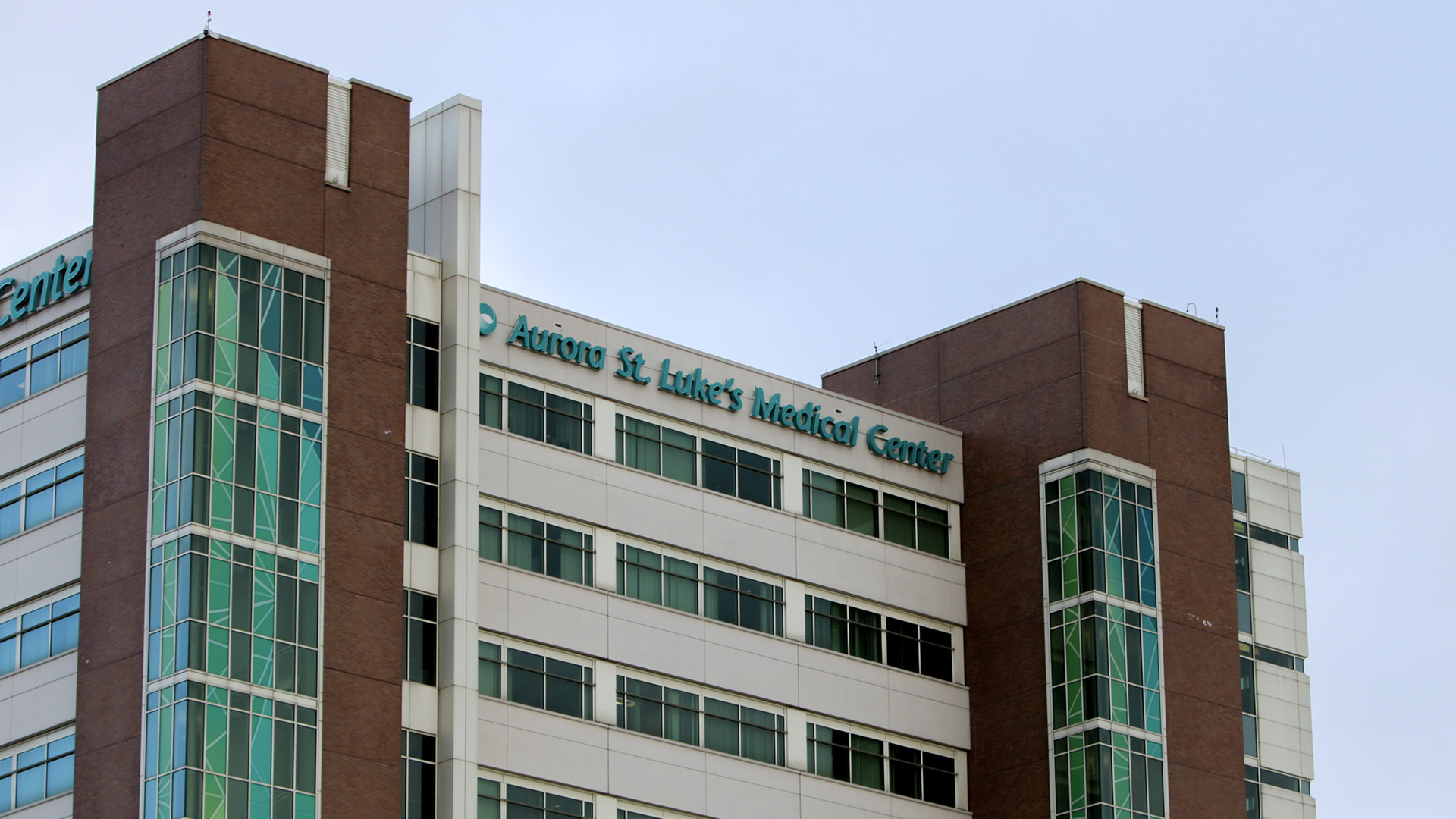
Aurora dismissed allegations raised by a whistleblower that Dr. Scott Kamelle routinely implanted powder and mesh devices, placed ureteral stents and involved additional surgeons in all except minor outpatient surgeries without medical necessity, leading to increased charges and potential complications. The Aurora St. Luke’s building is seen in Milwaukee on March 16, 2023. (Credit: Jonmaesha Beltran / Wisconsin Watch)
A 2011 study of one health system found providers placed ureteral stents in just 2.3% of major inpatient gynecological surgeries. It recommended against the practice because the procedure did not effectively prevent ureteral injury and added significant cost.
A 2016 clinical expert series article in the American College of Obstetricians and Gynecologists’ journal also advised that preoperative ureteral stenting does not reduce ureteral injury and “is not cost-effective at common levels of injury.”
“I am not aware of any other gynecologic oncologist who routinely places ureteral stents,” the whistleblower told DSPS.
He said he kept records of Kamelle’s adverse surgical outcomes for a “few months” in 2015 to share with Aurora leadership. He said he documented 10 cases of renal failure, some requiring temporary dialysis “as a result of the routine, indiscriminate and unnecessary placement of ureteral stents ordered by Dr. Kamelle.”
He further said he documented 28 of Kamelle’s patients who underwent unnecessary procedures alongside their necessary surgeries that he alleges resulted in complications, including “a few deaths shortly after futile surgeries.”
Costly additional surgeons involved
According to the whistleblower, Kamelle — without medical necessity — also enlisted the help of other surgeons in nearly all of his major surgeries.
“Gynecologic oncologists are highly trained surgeons and are expected to perform complex pelvic surgeries,” he told DSPS, calling the routine assistance of others a “red flag.”
The four people with direct knowledge of Kamelle’s surgical practice from 2011-2016 confirmed they witnessed Kamelle routinely involve urologists and general or colorectal surgeons.
Some couched their comments by noting that because they are not gynecologic oncologists, it’s difficult for them to evaluate what’s appropriate. But all said Kamelle’s use of co-surgeons far exceeds any other gynecologic oncologists they’ve encountered.
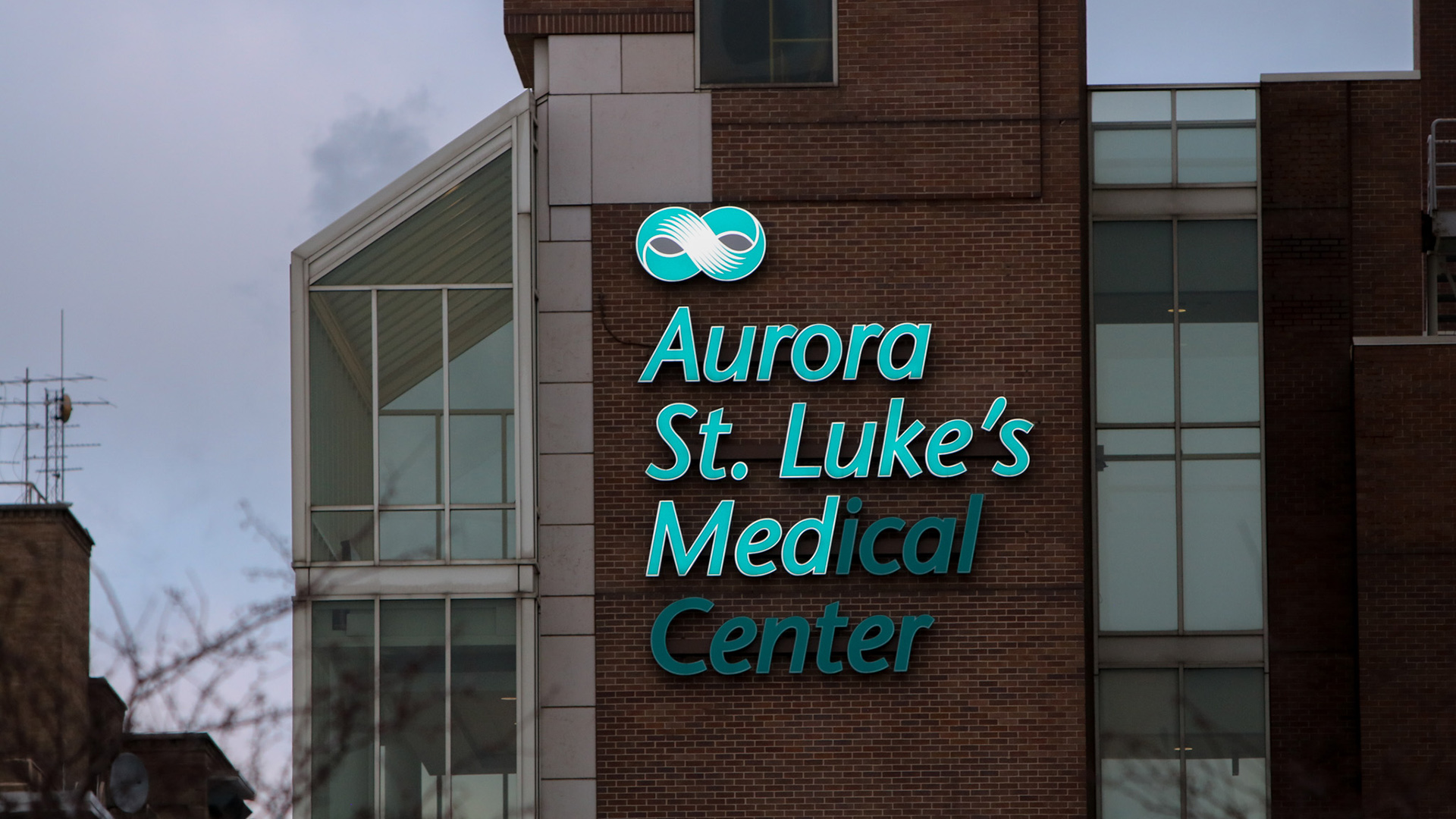
Dr. Frank LaVora, chief medical officer for Aurora’s Greater Milwaukee patient service area, said in a statement that an independent physician analysis showed Dr. Scott Kamelle “consistently met all standards of care and no opportunities for clinical improvement were identified.” Aurora St. Luke’s Medical Center is seen in Milwaukee on March 16, 2023. (Credit: Jonmaesha Beltran / Wisconsin Watch)
In the whistleblower’s DSPS complaint, he attributed Kamelle’s “routine involvement” of other surgeons to a “lack of confidence and competence.” He said adding surgeons “increases revenue for the health care system” while also raising the possibility of complications.
One of the four familiar with Kamelle’s practices said a colorectal surgeon “regularly” placed trocars, instruments used in laparoscopic surgery — something he said even medical residents did without assistance.
The practice appears to have continued, as the DSPS audit of eight cases in 2019 and 2020 found that Kamelle enlisted support from general or colorectal surgeons in every one.
Patient ‘dumping’ alleged
The physician alleges in his DSPS complaint that Kamelle “seriously jeopardized patient safety” as he “repeatedly dumped” some “difficult” patients on his colleagues. He summarized the experience of nine patients, some of whom he claims Kamelle transferred to his practice without “prior coordination” or abandoned in the operating room without notice.
“Dr. Kamelle simply failed to show up for a very serious and life-threatening surgery on a young mother,” the complaint alleges. The woman had a high-risk pregnancy complication called placenta accreta and needed a cesarean hysterectomy, a “technically challenging” surgery involving C-section birth followed by immediate removal of the uterus.
“All of a sudden, on the day of surgery, Dr. Kamelle stated that he was out of town,” even though he was scheduled to work, the physician alleged. The whistleblower had to “rush” to the hospital to “perform a complex cesarean hysterectomy.”
He claims a clinical leader acknowledged his “responsiveness,” and said it would be “called to the attention of leadership.”
The examples cited by the whistleblower echo what Bill Adamson said he and his late wife experienced. In a letter to DSPS, he wrote, “Rita and I had three interactions with Dr. Kamelle and every single time, he either failed to respond or responded with significant delay.”
The nonprofit Wisconsin Watch collaborates with WPR, PBS Wisconsin, other news media and the University of Wisconsin-Madison School of Journalism and Mass Communication. All works created, published, posted or disseminated by Wisconsin Watch do not necessarily reflect the views or opinions of UW-Madison or any of its affiliates.
 Passport
Passport




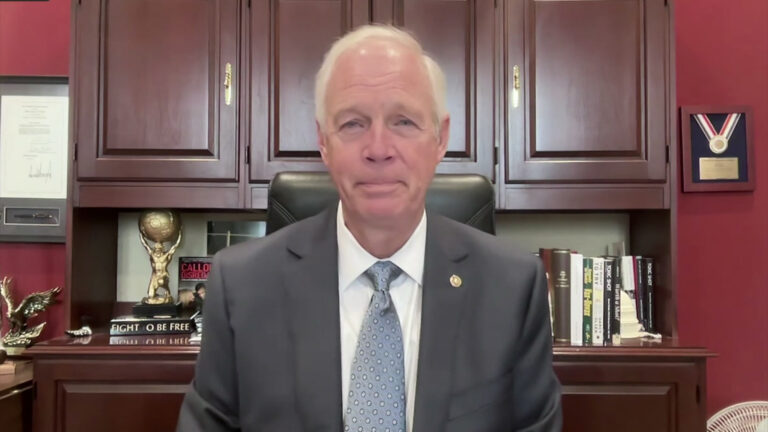
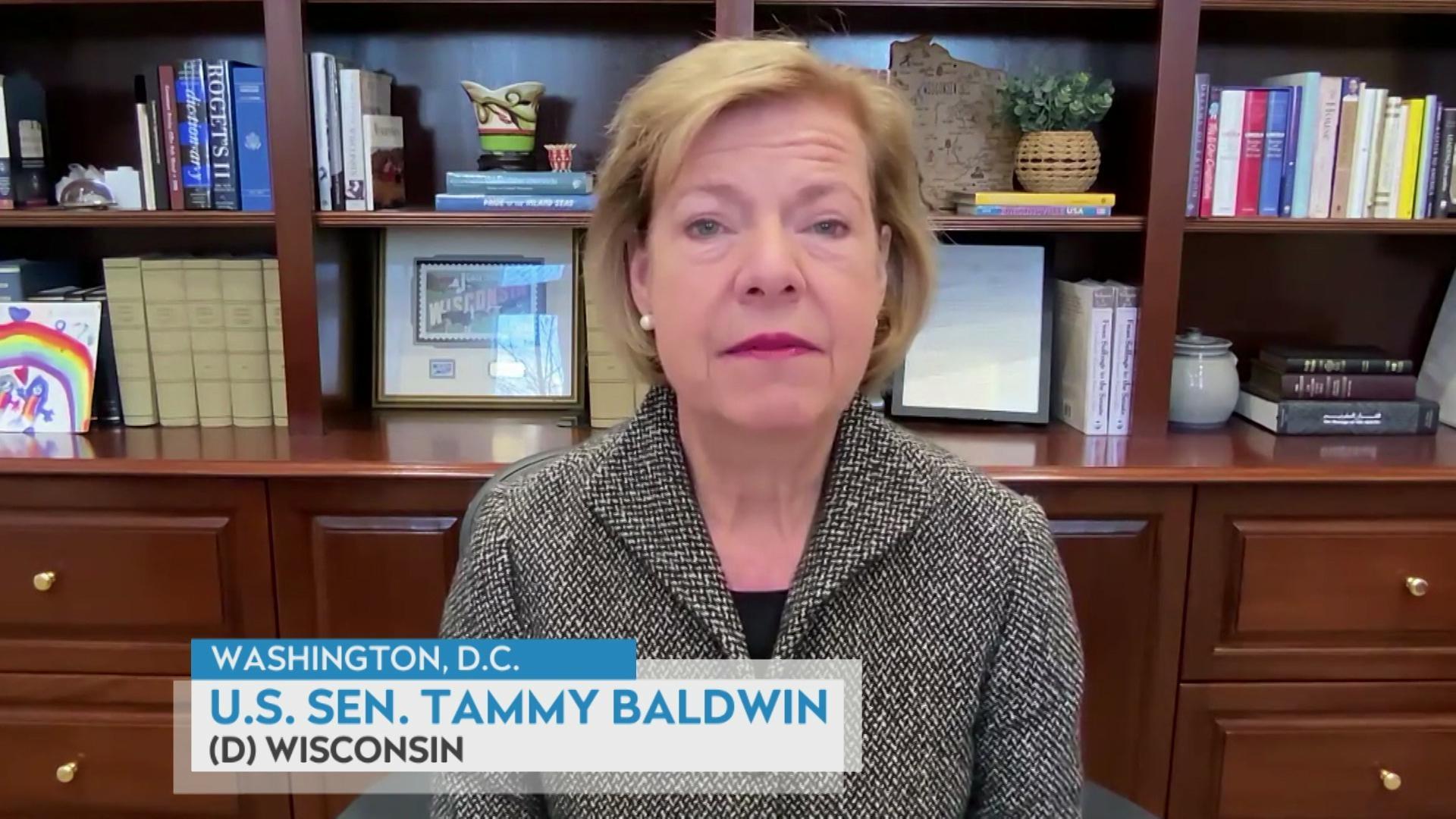
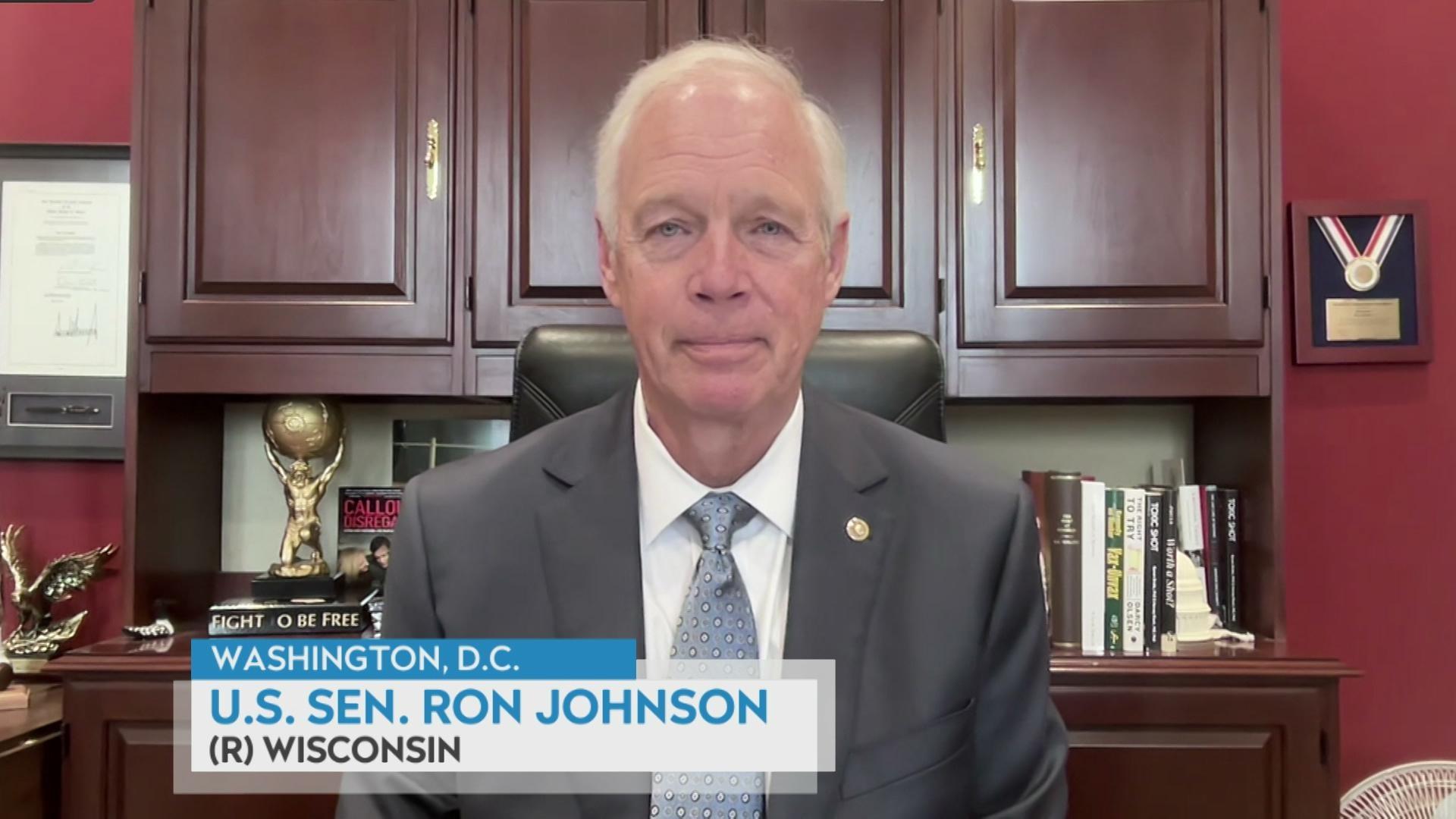

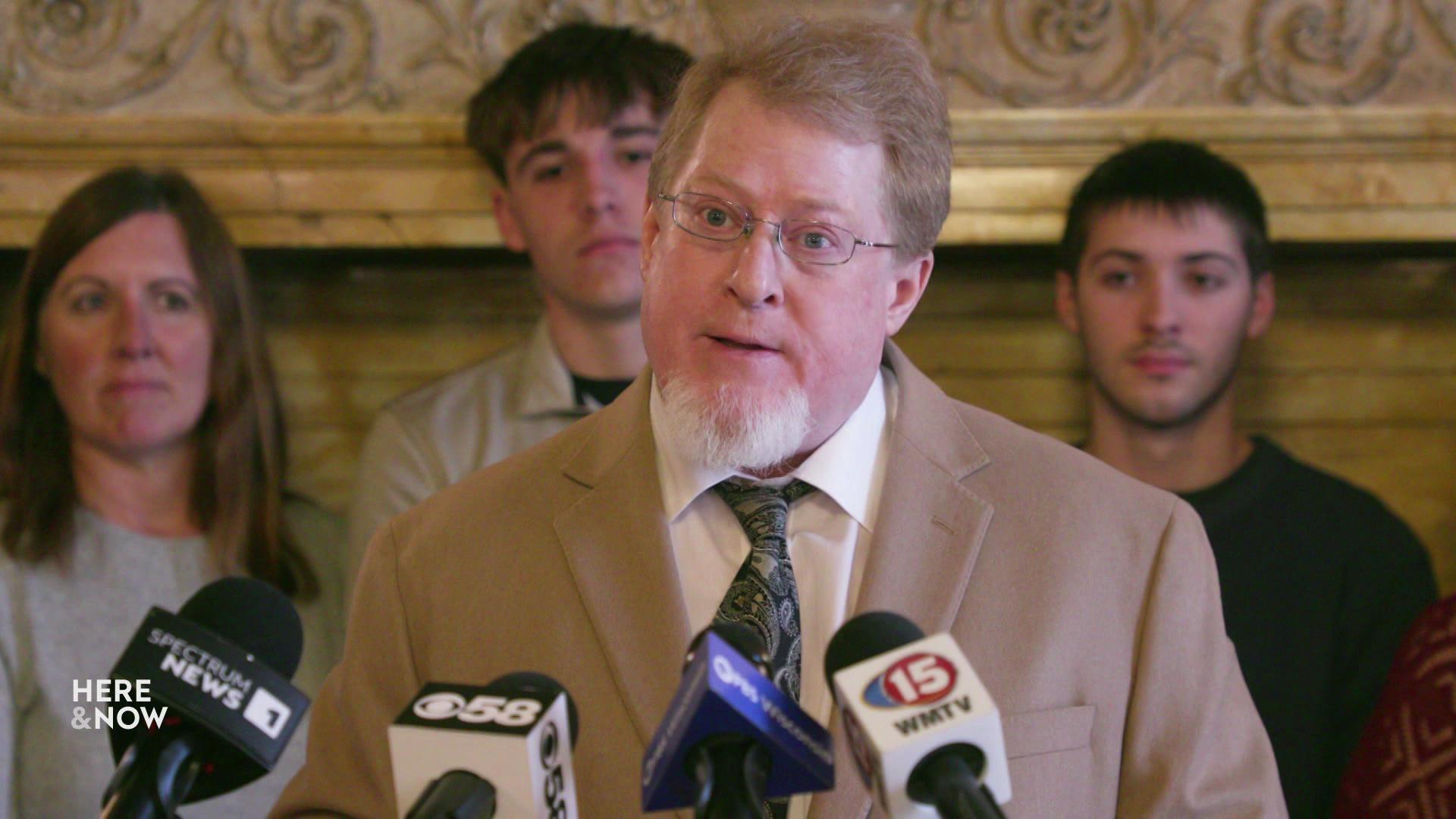
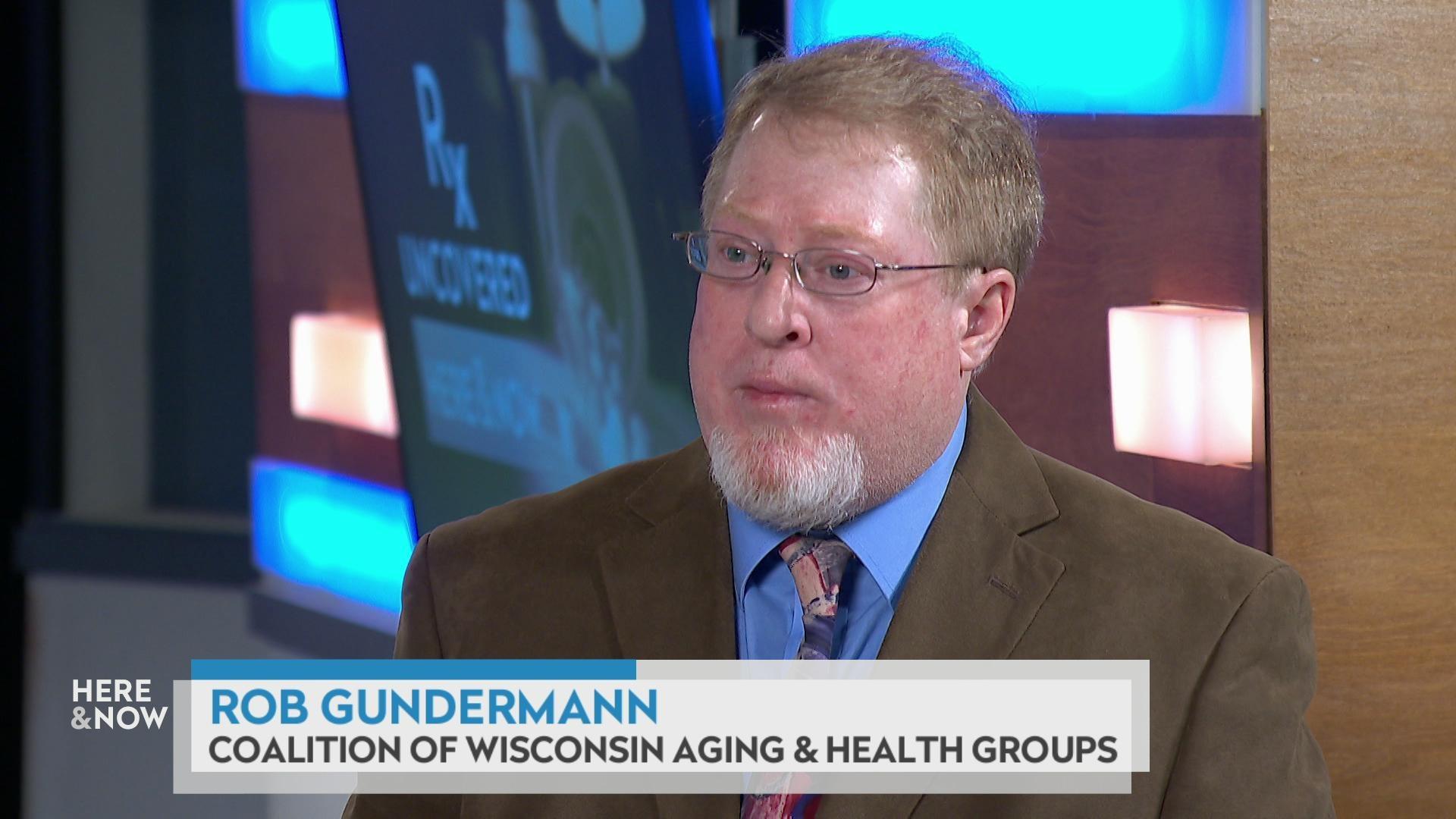

Follow Us